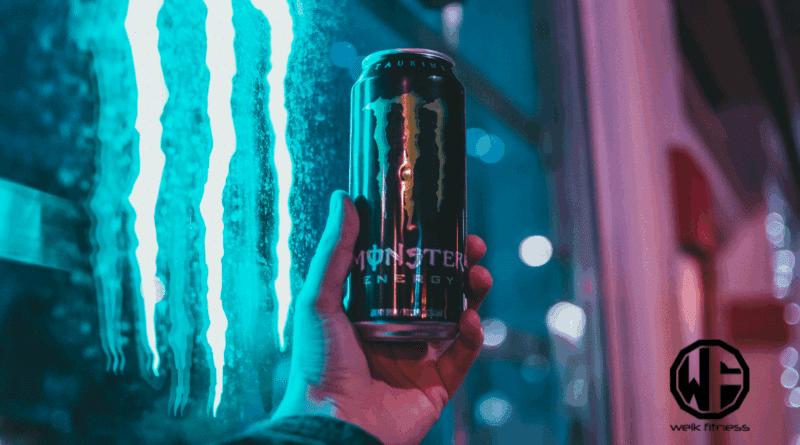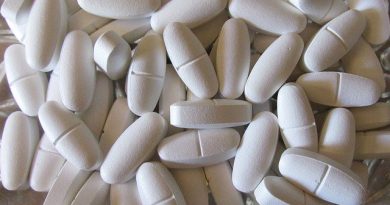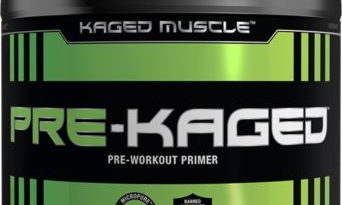Pre Workout vs Energy Drinks: Which is Best for Workouts?
The debate continues with the use of a pre workout vs energy drinks before training. If you walk into any gym, you’re going to see energy drinks and pre-workout powders being used by a good number of people. But when looking at the differences between pre-workouts vs energy drinks, there’s a lot to consider.
Many fitness fans struggle to pick between pre-workout supplements and energy drinks before hitting the gym. Pre-workouts and energy drinks contain different dosages of caffeine, with some energy drinks packing as much as five cups of coffee.
Your choice between these two options can make or break your workout results and energy levels.
In this article, I want to dive deeper into the use of a pre workout vs energy drinks as it relates to your training sessions. Is one better than the other?
Disclaimer: This article is for informational purposes only and is not meant to treat or diagnose any condition. It is recommended that you speak with your doctor before starting any exercise program, changing your daily nutrition, or adding any supplements to your regimen.
Table of contents
- Key Takeaways
- What Are Pre-Workout Drinks?
- What Are Energy Drinks?
- Key Differences Between Pre Workout vs Energy Drinks
- Benefits of Pre-Workout Drinks
- Advantages of Energy Drinks
- Potential Drawbacks of a Pre-Workout Supplement and Energy Drinks for Workouts
- Pre-Workout vs Energy Drinks — Which Should You Use for Workouts?
- The Use of Energy Drinks and Pre-Workouts Comes Down to Your Goals
- Pre Workout vs Energy Drinks FAQs
- Pre Workout vs Energy Drinks Resources
Key Takeaways
- Pre-workout drinks contain 150-300mg caffeine per serving, while energy drinks have 80-2000mg. Pre-workouts include special ingredients like beta-alanine and creatine for better muscle performance.
- Energy drinks generated $9.7 billion in U.S. sales in 2015. They give quick energy through caffeine, B-vitamins, taurine, and guarana. However, two servings can exceed the FDA’s safe daily caffeine limit of 400mg.
- Studies show energy drinks raise blood pressure and heart risks by 20%. Pre-workouts offer steadier energy and better muscle recovery through BCAAs and targeted nutrients.
- Research proves caffeine doses of 3-6mg per kg of body weight boost muscle power and sprint speed. Pre-workouts enhance exercise results more than energy drinks through specific performance-boosting compounds.
- Between 52-68% of teens and 32% of adults drink energy drinks for mental focus. The effects last 1-2 hours, making pre-workouts better for serious training goals.
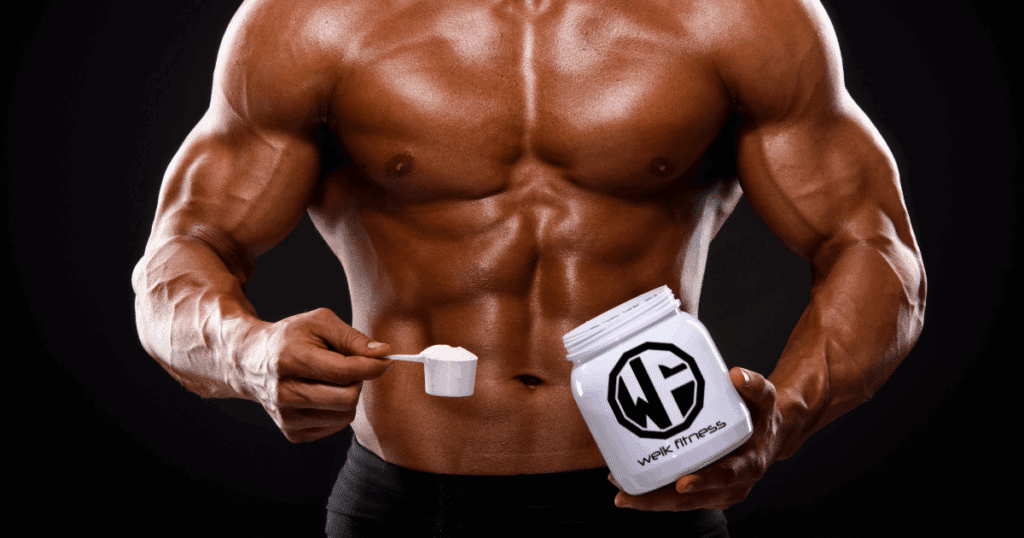
What Are Pre-Workout Drinks?
Pre-workout drinks contain specific ingredients to boost your exercise results. These fitness supplements contain L-Citrulline, Beta-Alanine (such as patented CarnoSyn®), and ELEVATP to power through tough training sessions — among other ingredients.
Pre-workout supplements target your fitness goals with precise formulations, unlike regular energy drinks. – Dr. James Wilson, Sports Nutrition Expert
Your muscles need fuel before intense training. Pre-workout drinks raise brain-derived neurotrophic factor (BDNF) levels to sharpen focus during exercise. The caffeine in these drinks helps you push harder through each set while supporting better muscle recovery after workouts.
That said, there are some who question if you really even need a pre-workout before training. Personally, I’m a huge fan of MyoLabs PV-7 and can tell a massive difference when I don’t use it before training sessions.
What Are Energy Drinks?
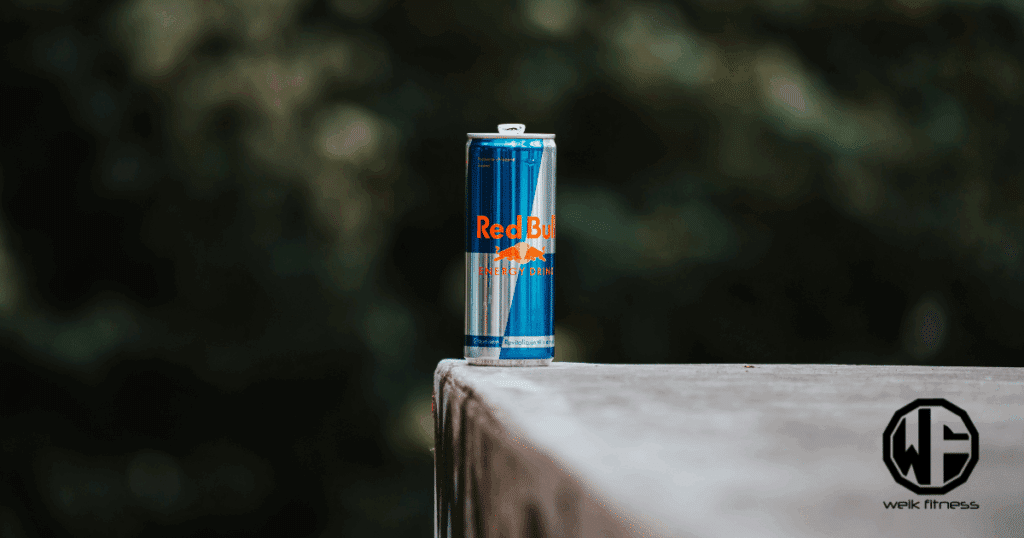
Energy drinks typically have a powerful mix of caffeine, B-vitamins, taurine, and guarana to boost mental focus and alertness. These drinks hit the U.S. market hard, generating $25.8 billion in sales in 2024 and is expected to reach $50.8 billion by 2033.
Most brands load their drinks with sugar and stimulants to give you quick bursts of energy, but can cause an abrupt crash shortly after.
Your body gets an instant lift from energy drinks through their special blend of ingredients. The caffeine works fast to sharpen your mind, while B-vitamins help turn food into fuel.
Taurine supports better brain function, and guarana provides a steady stream of energy. These drinks work great for daily tasks but might not give you the specific support needed during intense workouts.
Key Differences Between Pre Workout vs Energy Drinks

Pre-workout drinks and energy drinks show clear differences in their ingredients, purposes, and effects on your body. But let’s dive deeper into a pre workout vs energy drinks.
Ingredient Comparison
The main ingredients in pre-workout supplements and energy drinks serve different purposes for your fitness goals. Below is a detailed comparison of the key components of a pre workout vs energy drinks:
| Pre-Workout Ingredients | Energy Drink Ingredients |
|---|---|
| Beta-alanine (reduces muscle fatigue) | Taurine (mental focus) |
| Creatine (increases muscle strength) | Guarana (natural caffeine source) |
| Citrulline Malate (improves blood flow) | B-vitamins (energy metabolism) |
| BCAAs (muscle recovery) | Ginseng (energy boost) |
| L-arginine (muscle pump) | Artificial sweeteners |
| Caffeine (150-300mg per serving) | Caffeine (80-150mg per serving) |
| Beta-ketones (fat burning) | Sugar (quick energy) |
| L-theanine (focus) | Electrolytes (hydration) |
The FDA sets a safe daily caffeine limit at 400mg. Many energy drinks exceed this limit in just two servings. Pre-workout supplements contain specific performance-boosting ingredients absent in energy drinks. These targeted components help maximize exercise results through enhanced strength, endurance, and recovery.
Purpose and Effectiveness
Pre-workout supplements target your exercise goals with specific ingredients for muscle growth and stamina. These drinks pack higher doses of caffeine plus special compounds like beta-alanine and creatine to boost your strength and endurance during workouts.
You’ll notice better muscle pumps and longer-lasting energy compared to regular energy drinks.
Energy drinks serve a different purpose — they give you quick mental focus and short bursts of energy through caffeine and sugar. Most energy drinks contain 80-200mg of caffeine per serving, while pre-workouts often deliver 200-300mg along with muscle-supporting nutrients.
Your choice between these drinks should match your fitness needs: pre-workouts for intense training sessions, energy drinks for basic alertness and focus (or casual activities).
Benefits of Pre-Workout Drinks
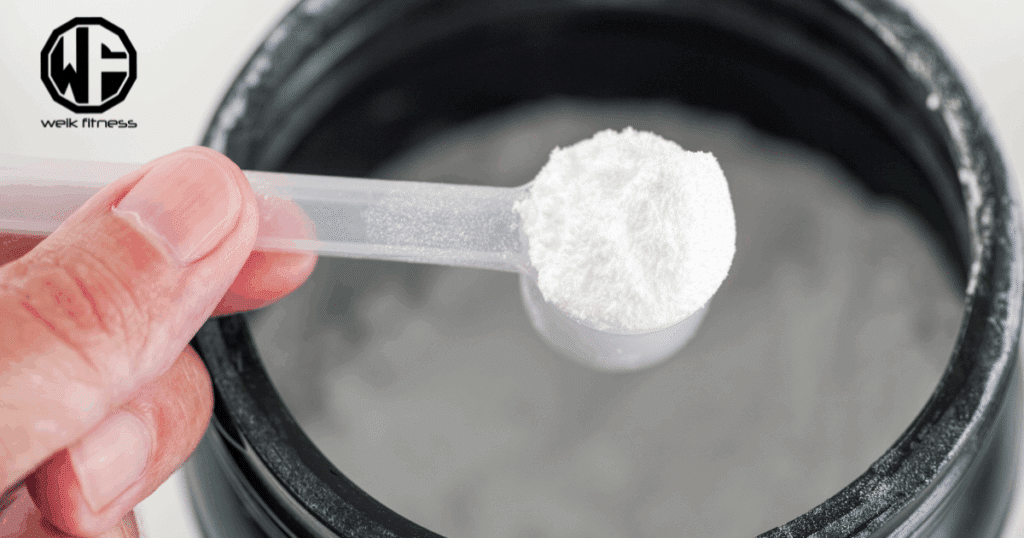
Pre-workout drinks contain multiple ingredients that boost your strength, sharpen your focus, and push you through tough training sessions. But let’s look at some of the specifics.
1. Enhanced Exercise Performance
Pre-workout supplements are great for your exercise routine. Your muscles gain extra strength and endurance from specific ingredients that target performance gains. Research shows caffeine doses of 3-6 mg per kg of body weight can boost muscular power, sprint speed, and workout stamina.
The right pre-workout formula helps you push harder through tough training sessions.
Your body responds well to targeted pre-workout ingredients during exercise. Beta-alanine fights muscle fatigue while low-dose caffeine speeds up reaction time.
These components work together to improve aerobic endurance by moderate to large amounts. The caffeine kicks in quickly to enhance strength and power output during intense training blocks. Many contain a slow-release version of caffeine to avoid a quick spike and then decline in energy before you finish your training session.
2. Support for Muscle Recovery
Some pre-workout supplements contain branched-chain amino acids (BCAAs) that help your muscles bounce back after tough training sessions. These amino acids speed up protein synthesis and cut down muscle soreness, letting you hit the gym harder next time.
Your body uses these BCAAs as building blocks to repair and grow stronger muscles.
Research shows pre-workout drinks boost brain-derived neurotrophic factor (BDNF) levels, which aids muscle recovery through better nerve signaling. The right mix of ingredients in your pre-workout can reduce exercise-induced muscle damage and speed up healing time between workouts.
Many fitness enthusiasts notice less fatigue and faster gains with regular pre-workout use before intense training sessions.
Advantages of Energy Drinks
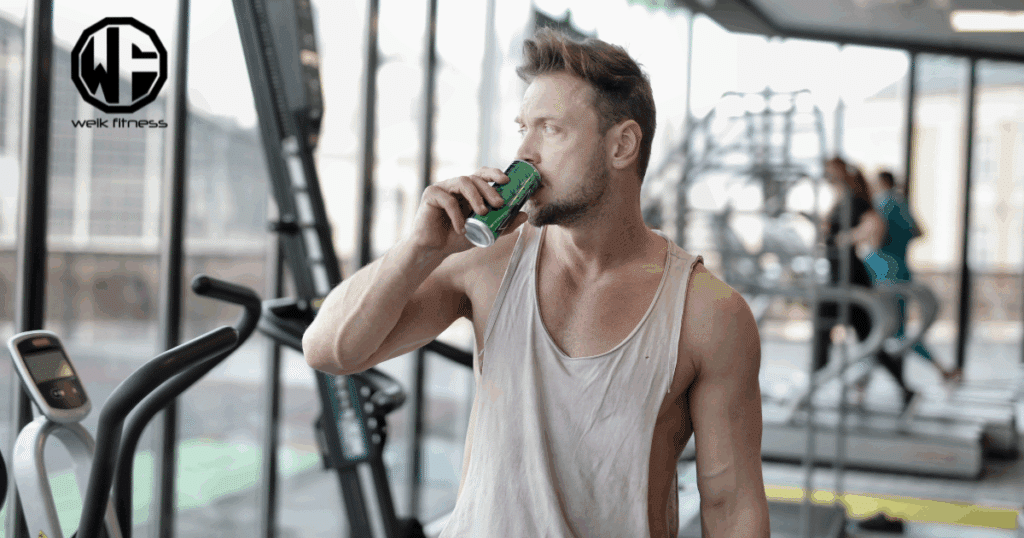
Energy drinks offer a fast energy boost and mental focus through their mix of caffeine, B vitamins, and sugar. Let’s look closer at some of the benefits.
1. Quick Energy Boost
Energy drinks give you a fast boost through their high caffeine content. Most brands try to put in as much as 200mg, which kicks in within 15-45 minutes after drinking. Your body absorbs this caffeine quickly, leading to better reaction times and sharper focus during workouts.
Personally, I leverage energy drinks as soon as I wake up. For instance, typically around 5am I’m reaching for a Monster Energy, Ghost Energy, or a C4 Energy Drink. That all being said, I only consume the zero sugar versions of energy drinks. I’m not a fan of sugar and don’t want or need all the extra calories.
These drinks create a rapid spike in your blood sugar levels. The U.S. energy drink market has exploded over the years because people love the instant lift they provide. The mix of caffeine, sugar, and B vitamins works together to raise your alertness and physical performance.
Yet this quick boost might fade faster than you’d like, leaving you searching for another drink to maintain your energy levels and help you get through the rest of your training session.
2. Improved Mental Focus
Energy drinks boost mental focus through a specific mix of ingredients. Research shows 52% to 68% of teens and 32% of adults drink them to sharpen their minds. Your brain gets a quick lift from caffeine, which makes you more alert and ready to tackle tough exercises.
The combination of caffeine and other stimulants helps you stay focused during long workout sessions.
Your mental sharpness peaks with proper energy drink use. Most drinks contain caffeine levels that enhance mood and motor skills right away. The boost in focus can last upwards of 1-2 hours, perfect for a standard gym session.
Studies prove these drinks help you stay alert and make faster decisions during physical tasks. Many fitness pros pair their drinks with green tea for steady, lasting focus throughout their routines.
Potential Drawbacks of a Pre-Workout Supplement and Energy Drinks for Workouts

A pre workout vs energy drinks can both carry risks — from jitters and crashes to high sugar content and potential heart issues. Below are some of the potential drawbacks of their use.
1. Side Effects of Pre-Workout Drinks
Pre-workout supplements can trigger several unwanted effects on your body. Your heart rate might spike due to high caffeine levels, making you feel jittery and restless. Many users report trouble sleeping after taking these drinks, especially if consumed late in the day.
The mix of ingredients often leads to stomach problems and water retention issues.
These drinks pack strong doses of niacin that cause skin flushing, which might hurt your workout goals. Beta-alanine, a common ingredient, creates a tingling feeling called paresthesia in your skin.
Your digestive system might react badly to creatine, causing mild stomach upset. The high caffeine content mixed with other stimulants raises your risk of headaches and anxiety during exercise.
2. Downsides of Energy Drinks
Energy drinks pose serious health risks to your heart. Research from 2019 shows these drinks raise blood pressure and affect heart rhythms more than placebo drinks. Your risk of cardiac arrest jumps 20% after drinking just two cans, based on a 2017 study of people with heart conditions.
The high sugar and caffeine mix in these drinks can mess with your sleep and upset your stomach.
These drinks can harm your mental health, too. Studies link energy drink use to stress and dark thoughts. Many people crash hard after the sugar rush wears off, leaving them tired and moody.
The caffeine in energy drinks can make you feel shaky and anxious, especially during workouts. Your body might also build up a tolerance, making you need more drinks to feel the same effects.
Pre-Workout vs Energy Drinks — Which Should You Use for Workouts?

Your fitness goals play a key role in picking between a pre workout vs energy drinks. Pre-workout drinks offer more benefits for serious athletes through targeted ingredients that boost exercise performance and muscle recovery.
These drinks contain specific amounts of caffeine, amino acids, and nitric oxide boosters to help you train harder and longer.
Regular gym-goers might prefer energy drinks for their quick boost and easy access. Yet these drinks pack high sugar levels and lack the vital nutrients found in pre-workouts. Most pre-workout formulas give steady energy without the crash that follows energy drinks.
You’ll get better results from pre-workout supplements if building strength and muscle mass tops your list of fitness goals.
The Use of Energy Drinks and Pre-Workouts Comes Down to Your Goals

Pre-workout supplements stand as the clear winner for serious fitness goals. These targeted formulas give lasting energy and better muscle support than standard energy drinks.
All that being said, the right choice depends on personal fitness needs — pre-workouts excel for intense training while energy drinks work for quick boosts during light exercise.
Making smart choices about workout supplements leads to better results and safer training sessions. Only you can make the decision of which drink you want to choose prior to your workouts.
Pre Workout vs Energy Drinks FAQs
Pre-workouts contain ingredients made for athletic performance and muscle growth. Energy drinks focus more on quick energy spikes through high amounts of sugar and caffeine. Pre-workout gives you sustained energy, while energy drinks offer temporary boosts.
High levels of caffeine and sugar content in energy drinks may harm your cardiovascular health. The consumption of energy drinks can lead to unsafe caffeine intake if not monitored carefully.
Good pre-workout powders provide steady energy levels for your entire gym session. Energy drinks tend to cause energy spikes that crash quickly.
Coffee or tea can work as natural alternatives with less sugar than energy drinks and pre-workouts. They contain caffeine that can boost energy, but lack other performance-helping ingredients.
Total caffeine in pre-workouts ranges from 150-300mg per serving. Energy drinks usually contain between 80-200mg of caffeine per can.
Pre-workout supplements are better for serious training as they improve muscle performance and provide lasting energy. Energy drinks are designed for basic energy boosts but aren’t ideal for intense workouts.
Pre Workout vs Energy Drinks Resources
- https://pmc.ncbi.nlm.nih.gov/articles/PMC7777221/
- https://pmc.ncbi.nlm.nih.gov/articles/PMC5154715/
- https://pmc.ncbi.nlm.nih.gov/articles/PMC8401129/
- https://www.healthline.com/nutrition/pre-workout-side-effects


*Disclosure: This article may contain affiliate links or ads, which means we earn a small commission at no extra cost to you if you make a purchase through these links. These commissions help support the operation and maintenance of our website, allowing us to continue producing free valuable content. Your support is genuinely appreciated, whether you choose to use our links or not. Thank you for being a part of our community and enjoying our content.
PLEASE CONSIDER SHARING THIS ON YOUR SOCIAL MEDIA TO HELP OTHERS LEARN MORE ABOUT THIS TOPIC.


